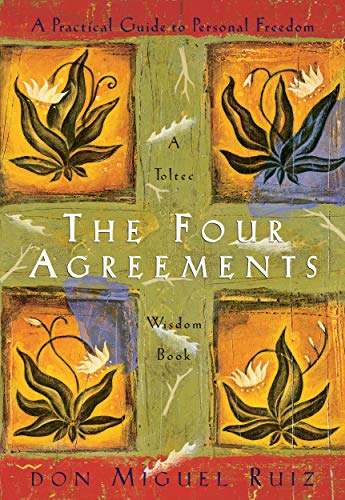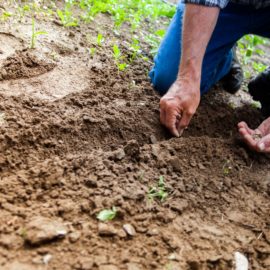

This article is an excerpt from the Shortform summary of "The Four Agreements" by Don Miguel Ruiz. Shortform has the world's best summaries of books you should be reading.
Like this article? Sign up for a free trial here .
This fourth agreement is also a simple concept, but it will allow the other three agreements to become more deeply ingrained and effective. After all, the first three agreements can truly work only if you do your best.
Doing your best frees you from guilt and shame. You feel great about yourself when you’ve given your best effort.
What Is “Your Best”?
First, it’s important to understand that your best isn’t a constant; it will vary. Sometimes you’re fresh and vital; other times you’re tired. Sometimes you’re healthy and sometimes you’re sick. Your best is the best you can do under your current circumstances.
In fact, your best can change even from moment to moment. And that’s OK.
Your best doesn’t mean trying to do more than you’re capable of in the moment (the old “giving 110 percent”). Doing more than your best depletes your personal energy. But doing less than your best leaves you with guilt and regret.
When you’re giving your best, you’re taking action without expecting a reward. The rewards will come, but they’re not your end goal. You simply enjoy performing at the peak of your ability.
Good Things Happen When You Do Your Best
When you do your best, good things happen:
- You’re more productive. You gain positive momentum when you put out a good product you take pride in.
- You’re kinder to yourself. You’re less likely to be hard on yourself because you’re proud of your end result.
- You’re happier. It’s easy to be happier when you aren’t heaping blame and shame on yourself for giving a shoddy effort.
- When you can truly say you did your best, you will have no regrets. There’s no guilt or blame. You’re set free.
Doing your best isn’t about being perfect. You will make mistakes, but that’s OK. You learn from your mistakes, keep practicing, and look honestly at your results. Doing your best helps you feel good about yourself.
The author personally defines “doing his best” as ritual and honoring God. He feels God is life in action, and the best way to honor, love, and thank God is doing your best. (Shortform note: Of course, everyone will have their own inspiration for and definition of doing their best.)
Tips on Doing Your Best
- Let go of past mistakes and regrets. If you regret doing a poor job and getting fired from a position in the past, let it go. Focus on your new job and new opportunities.
- Learn to say NO when you want and YES when you want. You’ll stop yourself from taking on things you don’t want to do and spend your time doing your best at things that uplift you.
- Keep trying if you fall short on following the Four Agreements. Do your best, and there will be no self-recriminations. Do not judge yourself.
- Keep your attention on today. Stay in the present moment. Do your best one moment at a time.
- Doing your best is about taking action. Without action, the ideas stay in your head. When you take action, you are expressing who you really are.
———End of Preview———

Like what you just read? Read the rest of the world's best summary of Don Miguel Ruiz's "The Four Agreements" at Shortform .
Here's what you'll find in our full Four Agreements summary :
- What the Four Agreements are, and how they'll make you happier with life
- Why you need to take responsibility for your life, instead of blaming others
- How to achieve breakthroughs in your life and shake off old habits






